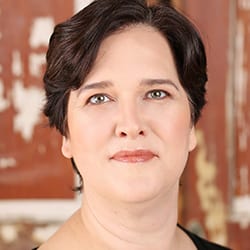Volunteer Coach to Flex Your Humanitarian Muscles
You likely became a professional coach because you set out to make a positive difference for people. This intrinsic value led you to choose an industry where the bulk of your work is humanitarian in nature because it deals with humankind. It feels good to be a coach because you know that you’re potentially making a positive difference in the lives of the clients you serve.
What if you took that one step further and added pro bono coaching into your practice? What if you were to offer a sliding scale to lower-income clients? What if you started discounting your services to those in financial need?
Volunteer coaching might have been a part of your practicums when you first became trained or certified. How about extending that goodwill into your current and future coaching?
Many coachpreneurs start off with an idea to work for themselves doing something they love…and when they become successful financially, they might give to charity. Maybe you can flip this model to be of service first: doing something you love and allowing the money to come abundantly to you.
If you are always in the mindset of service, you will likely increase your income organically because you will be known as a professional coach who “gives back” and pays it forward. This could also potentially lead to good media exposure because of your volunteerism or charity work as a coach. You may even “go viral” online with pro bono coaching and increase the social media exposure of your for-pay services and programs.
For instance, you can offer discounted or pro bono coaching to nonprofit organizations who might be struggling financially. You can offer group coaching to a fundraising team or an NGO leader.
You can also volunteer for a local, regional or global nonprofit organization to provide one-on-one and group coaching to its constituents—or better yet, their burned-out staff and volunteers.
Volunteer coaching can be as simple as reaching out in your local community to help others in need—maybe a homeless shelter, a school, a church group or a senior center. You can offer a sliding scale privately to some of your low-income clients, setting aside a small percentage of your time and energy to coach for free or at a discounted rate.
A coaching colleague of mine, Misti Dian, puts it this way: “When you come from a place of wanting to help people, that’s about you. When you come from a place of genuinely wanting to make a difference, that is about being of service.”
Many professional coaches gravitate to their work because of a deep desire to make a difference. For me, this started in my childhood when adults asked me what I wanted to do when I grew up. My response was typically, “I just want to help people, but I’m not sure how.”
So, I looked into education, health care, social work and therapy; none of that fully resonated. I went into nonprofit work out of college because I thought that this would flex my humanitarian muscles.
Like many of us when we work for nonprofits, I got burned out after many years of endless fundraising campaigns and activism. I felt discouraged because I wanted to “do more” and help more people. I could have really used a coach back then!
One day while working at a nonprofit, a respected colleague of mine turned to me and said, “You would make an amazing life coach because you’re so compassionate and so resourceful.”
I turned to my colleague almost in disbelief like, “There’s a name for this thing I want to do?”
I am so grateful to this colleague, Dr. Carrie Phelps, because she set me on a path of personal and professional discovery that ultimately led me to a place now of deep humanitarian work as an international coach. I set out to offer affordable and accessible coaching, and now global coach training certifications.
When I visited Honduras for the first time, I noticed that residents there didn’t have many job opportunities. I learned that Hondurans (on average) earn only $1 USD per day. Because of my coach training background, my first thought was, “I can certify coaches here, and they can make money from online coaching. They can coach tourists, and they can coach pro bono in their communities.”
That small idea back in 2013 turned into training and certifying over 150 coaches in Central America where professional coaching barely existed a decade ago.
There is also a tremendous benefit to offering pro bono coaching, including the “feel good” biochemical response it provides. It reminds us as to why we became a professional coach in the first place: to help others and be of service.



I am keen to do pro bono coaching
I like that you pointed out that many professional coaches do their job because of their desire to make a difference. If someone will really finds a coach like that, they would really feel the passion from them and be inspired. Any person wanting to better their life and career would improve their perspective and how they act in life if they hire services like that especially when they are at the moment when they feel burned out by their jobs.